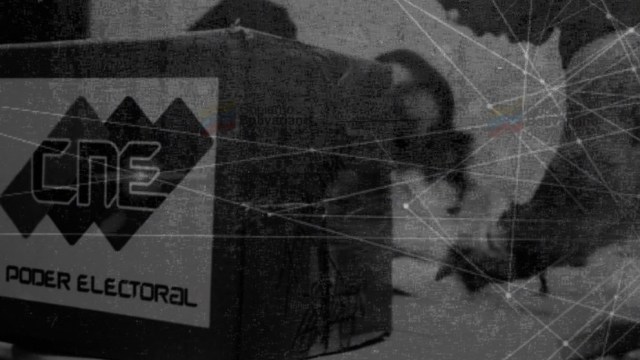Lapatilla

Social media was at the center of Venezuelan regional elections, but instead of a conversation it was a bit of a mess.
By Caracas Chronicles
Dec 3, 2021
Probox, our media partner that monitors social media conversations, made a detailed and thorough report about the November 21st regional elections and the behavior of the conversation in social media.
There were some pretty relevant findings, but we can highlight some of the most important conclusions:
The regime broke a couple of laws (and some Twitter norms)
- From February to November, Probox registered around 1,884,956 messages in the electoral conversation. Chavismo promoted the largest number of trends and tweets, generating 91.6% of the messages about the elections on Twitter.
- Probox identified the MIPPCI as the largest generator of electoral messages: it promoted eight trending topics that generated 67% of the total messages of the electoral conversation between February and November. Half of these tendencies made direct propaganda to the PSUV and the Gran Polo Patriótico, violating electoral regulations as it’s a state entity.
- Probox analysis reveals that, on average, 66.85% of the content in the MIPPCI trending topics was inorganic (generated by potentially fake or automated accounts). The policy regarding spam and Twitter manipulation establishes that: “You may not use Twitter services for the purpose of artificially amplifying or suppressing information, nor carry out actions that manipulate or hinder the user experience on Twitter” and that “coordinate with or reward other people to generate interactions or artificial amplification.”
- On Monday, November 22nd, a day after the elections, the account of the “communication channel” of the Movimiento Somos Venezuela political party, started by Nicolás Maduro and led by Delcy Rodríguez, published a message on Twitter reporting on the delivery of a bonus to people who “stood out on social media (Twitter)” corresponding to the week of November 15th to 21st through the carnet de la patria system.
- On November 23rd, the head of the European Union’s electoral observation mission, Isabel Santos, presented a preliminary report on their findings. One of the sections highlights the use of digital media and its growth in the country due to the censorship of traditional media, in addition to the generalized distrust of citizens in the media: “Half of Venezuelans (about 14 million people) are social media users. The internet has grown in relevance in recent years following the loss of trust in traditional media, some of which are subject to government control. The lack of paper caused many newspapers to exist only in their digital version, which increased the importance of online media. “
- The report of the European Union Mission also highlights that: “Some institutions and public officials continued to use their official social media accounts in the campaign to support the ruling party.”
Twitter Users Protest a Lot… Except about the Elections
- Probox analysis shows how civil society didn’t get involved in the electoral conversation of the trending topics positioned on Twitter in Venezuela, but rather in activism and the demand for their rights.
- Probox also revealed how user groups identified as “anonymous networks” tried to influence the conversation, pretending to be part of civil society to promote candidates, discredit opponents and encourage voting.
- Between January 1st and November 28th, 2021, Probox registered 344 trends promoted by Venezuelan civil society on Twitter and only two made reference to the elections.
- The other 342 protest labels promoted by Venezuelan civil society don’t talk about the elections, in fact, the main reason for the digital protests was human rights violations (116 trends), followed by economic reasons (74 trends), failures of services (43 trends) and health issues, especially on the pandemic (42 trends).
- According to the trending topics of the elections in Venezuela, Probox doesn’t have evidence of the majority of civil society getting involved in the digital political debate. It seems that there was no connection between the electoral campaign and the involvement of citizens with it, who were focused on organizing through Twitter as a window of expression for digital activism, online social protest and the demand for their rights through tags or hashtags. In fact, the most repeated label by civil society was #SinLuz, positioned at least 26 times reporting power failures throughout the national territory.
- On average 97.13% of the messages were made by real users, being one of the most organic trends registered during the year.
- Probox identified that “anonymous networks” was the second actor with the highest number of electoral labels positioned as a trend in Venezuela: these networks are groups of users without verifiable identity, coordinated among themselves, who are dedicated to defaming democratic opposition leaders, misinforming about events in the country and carrying out electoral and even commercial propaganda in the socio-political conversation on Twitter. They positioned 18 electoral trends and around 34,611 tweets, of which on average 29.89% were made by possible bots or fake accounts.
- Nine of these trending topics were dedicated to promoting Leocenis García, who was running for mayor of Libertador municipality until on November 12th he declined his candidacy in favor of Tomás Guanipa, candidate for the Democratic Unity Roundtable (MUD).
- The rest of the electoral trends promoted by these networks promoted propaganda in favor of PSUV candidates (#JehysonPorMerida), simulated support for the MUD (# VotoMUD21N), sought to encourage the vote (# VotemosTodos21N), defamed the opposition candidate for the governorship of Miranda, David Uzcátegui (#UzcateguiDivisionista) and they supported Javier Bertucci, who aspired for governor of Carabobo for the political party El Cambio (#BertucciEsUnidad).
- These networks of coordinated “users” delete their messages once the label they wish to promote has been positioned, in order to erase a public record of this activity, which makes it difficult to obtain the necessary data for the measurement of inorganic and approximate tweets, violating the policy regarding spam and manipulation on Twitter.
…
Read More: Caracas Chronicles – Twitterzuela users also lost interest in politics
…

